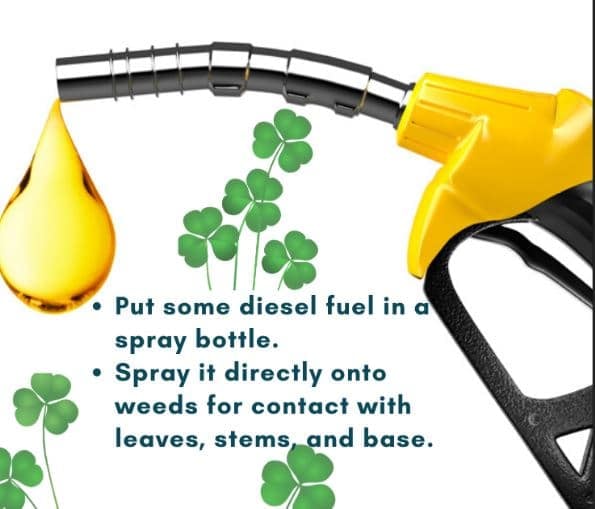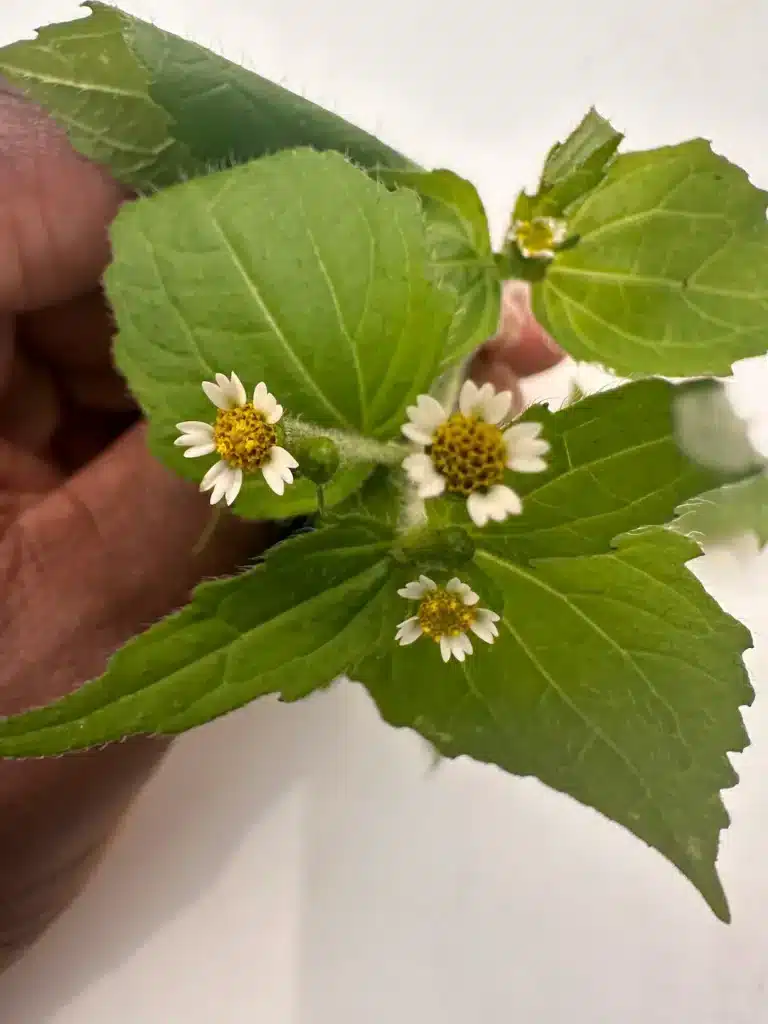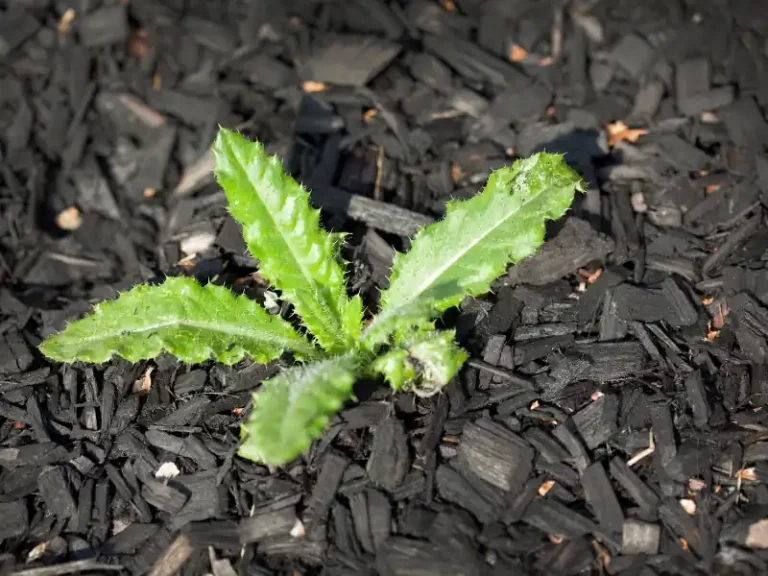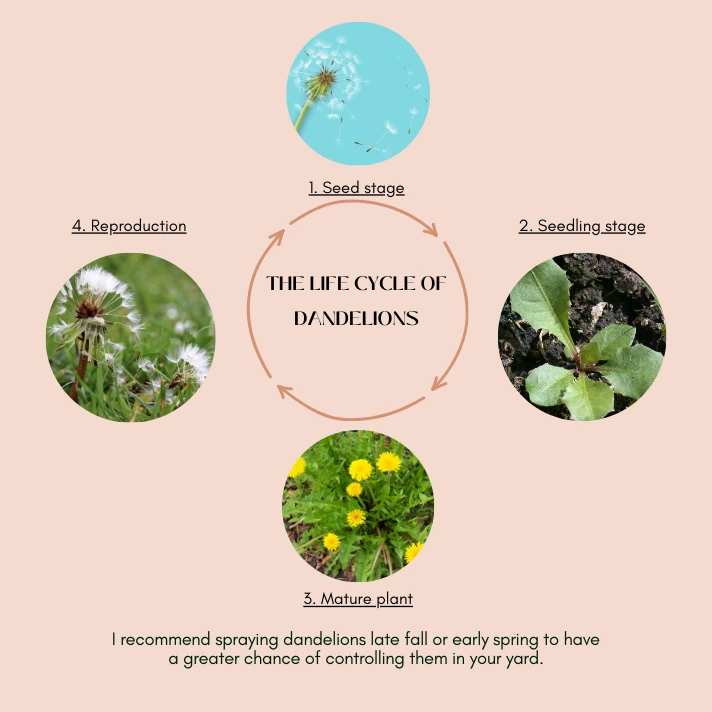Does Diesel Kill Weeds? How to Use Fuel on Weeds
It takes great effort to kill stubborn weeds that keep recurring every season. When you don’t want to use Roundup to to control weeds in your lawn, you might consider anything else, including diesel fuel, as a weed killer.
But does diesel really kill weeds?
Diesel kills weeds and all plant material that it comes into contact with. The fuel is toxic to all plants and will kill both broadleaf and grass weeds permanently. Apply diesel as a spot-treatment on the weeds you want to kill to the root, but be careful not to kill desirable plants and grass.

CAUTION: Diesel is harmful to plants and microorganisms and does not break down easily. Be careful not to apply it on desirable plants or even use it in gardens, lawns, and vegetation landscapes. I recommend you use it on gravel, pavements, and driveways only to control weeds permanently.
Does diesel kill weeds permanently?
Diesel is so toxic that it kills weeds and any plants it comes into contact with permanently. However, it will not destroy any dispersed seeds but prevent them from germinating.
Seeds will only germinate after the fuel is washed away from the soil by rain or watering. You may need to use diesel every season for the best results.
Note that diesel takes a long time for diesel contamination in the soil to clear. It can take up to 4 years for the fuel to break down and leave the soil viable for planting.
Being a fuel and a toxin, diesel will also kill the insects in the soil, including pests and good organisms. However, it also means killing the microbes responsible for the healthy development of the soil and your plants’ root system. Thus, precautions need to be put in place for the best results.
How to kill weeds with diesel fuel
You’ll need a spray bottle for thick liquids (like one with a direct spray nozzle), a gasoline jug/jerrycan, diesel, a shovel, and a funnel.
Here’s how to kill weeds using diesel:
- Pour diesel into a jug or jerrycan.
- Funnel the fuel into a spray bottle.
- Spray the diesel directly onto the broadleaf and grassy weeds, ensuring it comes into contact with the leaves, stems, and the area around the roots.
- Allow a few days for the weeds to die
- Hand-pull the dead weeds in your yard and dispose of them.
You need to do this preferably in your garage or another place without plant cover on the ground to avoid accidentally killing the good plants with diesel spills.
Can diesel get rid of grassy weeds?
Being a nonselective plant killer, diesel will also get rid of grassy weeds and any other plants where it is applied.
Depending on the type of grassy weeds, the amount of diesel sprayed may need to be increased for proper coverage.
How long does it take diesel to kill grass?
Diesel takes about 48 hours to kill grass and weeds effectively. While you’ll see the results with the plant leaves starting to wilt in a few hours, it needs to remain in contact with the plant for at least 48 hours to kill it off effectively.
Roundup vs. diesel
The combination of diesel and roundup works much better than either of them on their own. Both diesel and roundup are nonselective weed killers and can produce results quickly. Roundup kills weeds to the root, just like diesel.
Roundup is a very effective weed killer and will eliminate weeds starting three hours of spraying.
Roundup and diesel can both destroy weed seeds to prevent further germination in their next season.
I would say both are effective at killing stubborn weeds but should be used with caution to avoid destroying all vegetation around the yard.
Safety Precautions
While quite effective at killing weeds and grass, diesel can also harm the environment.
Here are safety precautions to consider:
- Diesel is a fire hazard and should not be sprayed around fires.
- Spray diesel early in the morning when there’s no chance of wind or rain for at least 48 hours.
- Diesel kills all plant life and should not be sprayed on areas with flowers or other good plants.
- Wear a mask when spraying diesel on the weeds because it irritates the breathing system when inhaled.
- Return the diesel into the jerrycan rather than storing it in the spray bottle. Store it in the garage and not indoors to prevent fires and harm to people who may inhale it.
- Don’t use diesel on the soil if you have well water, as it’ll likely seep into the ground and the water source.
Read next:




